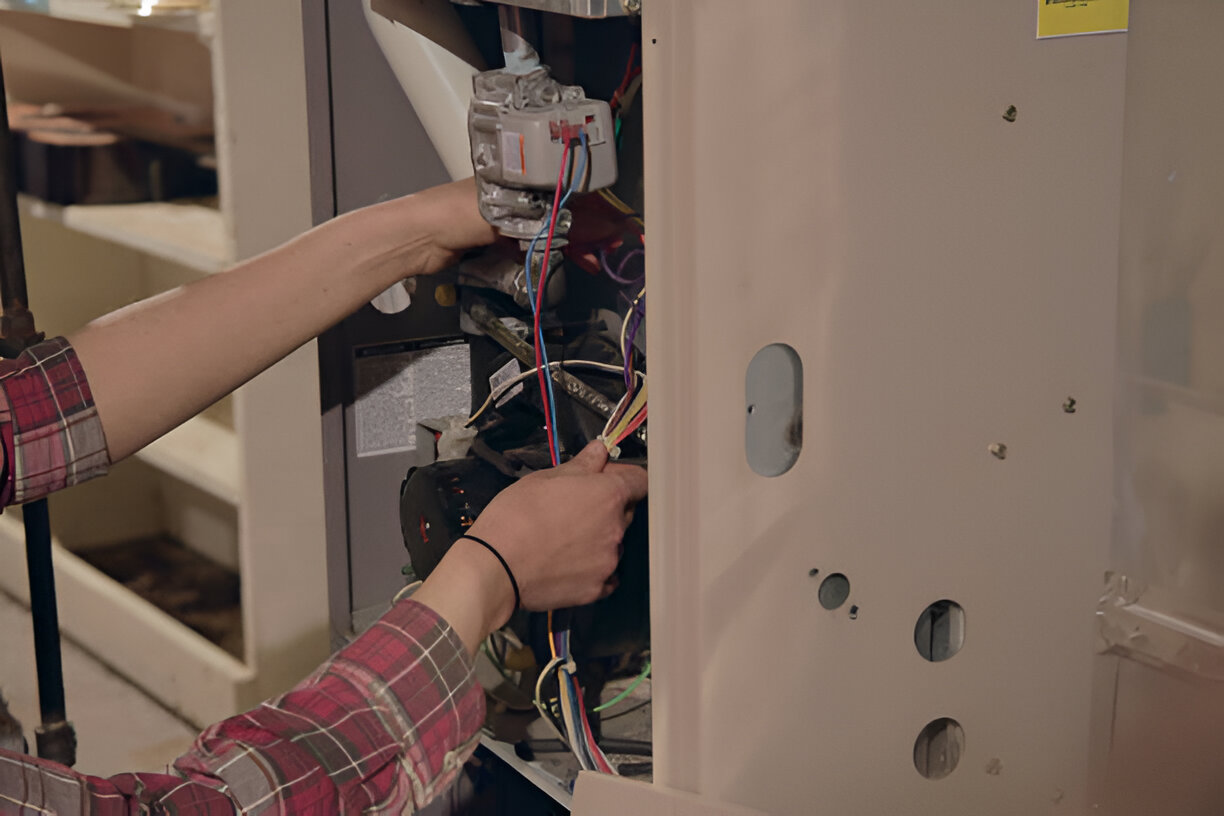
Furnace Tune-Up in Fawn Grove, PA
A professional furnace tune-up is the most effective way to keep your home warm, safe, and energy-efficient through Fawn Grove winters. Annual maintenance addresses common performance problems before they become costly breakdowns, improves heating efficiency, and reduces the risk of safety hazards like carbon monoxide. For homeowners in Fawn Grove, PA, where cold snaps and extended heating seasons are common, a thorough furnace tune-up is a decision-stage service that delivers measurable comfort and reliability.
Common furnace problems in Fawn Grove homes
- Reduced heat output or uneven heating between rooms after a long cooling season
- Higher than normal energy bills during the winter months
- Frequent cycling or short-cycling caused by restricted airflow or failing controls
- Noisy start-up or unusual mechanical sounds from blower motor or burners
- Ignition or pilot problems in older equipment
- Increased dust and indoor air quality complaints related to clogged filters or dirty components
Seasonal humidity swings and sustained cold periods in southern York County often put extra strain on furnaces, making preventive tune-ups particularly valuable.
What a furnace tune-up includes
A proper furnace tune-up inspects and adjusts every component that affects performance, safety, and efficiency. Typical items checked and serviced include:
- Visual inspection of the heat exchanger for cracks, corrosion, or damage that can cause carbon monoxide leakage
- Burner and combustion chamber cleaning to ensure efficient, complete combustion
- Ignition system and flame sensor cleaning and testing to verify reliable starts and secure flame detection
- Gas pressure and valve operation testing to confirm safe fuel delivery on gas-fired units
- Safety switches and controls testing (limit switch, rollout switch, pressure switch) to verify automatic shutdowns work properly
- Blower assembly cleaning and inspection (motor, wheel, belts) and lubrication where applicable for proper airflow
- Air filter check/replacement and assessment of filter type to balance airflow and filtration needs
- Duct and venting inspection to identify blockages, disconnected ducts, or vent corrosion that reduce efficiency or create safety risks
- Thermostat calibration and cycling test to confirm accurate temperature control and proper sequencing
- Measure temperature rise and static pressure to assess combustion and airflow performance
- Inspect condensate drain and trap on condensing furnaces to prevent clogs and corrosion
- Tighten electrical connections and test capacitors, relays, and safety devices to prevent electrical failures
- Carbon monoxide and combustion analysis when indicated by inspection or age of system
Typical tune-up process and estimated duration
- Arrival and initial system assessment: 5-10 minutes
- Safety checks and visual inspection: 10-20 minutes
- Cleaning burners, combustion chamber, and flame sensor: 15-30 minutes
- Blower and electrical checks, lubrication, and filter replacement: 20-30 minutes
- Performance testing, measurement of temperature rise, combustion analysis and final adjustments: 15-30 minutes
Most standard furnace tune-ups take 60 to 90 minutes for a single-family home with a standard gas furnace. Older systems, multi-stage equipment, or units requiring repairs may extend the visit up to 2 hours.
Performance, efficiency, and comfort improvements you can expect
- Improved fuel efficiency — a clean, well-adjusted furnace typically operates 5 to 15 percent more efficiently, lowering heating costs.
- More consistent warmth with better airflow and balanced temperature distribution.
- Quieter operation after blower and burner adjustments.
- Faster, more reliable starts due to cleaned ignition and flame sensing components.
- Longer equipment life when wear points are identified and minor issues are corrected early.
- Better indoor air quality as filters and components are cleaned or replaced, reducing dust and allergens.
How tune-ups reduce the risk of emergency failures
A tune-up is preventative maintenance designed to find small problems before they become system failures. Specific ways tune-ups lower emergency risk:
- Detecting a weak ignition or failing heat exchanger before it causes a no-heat condition or safety hazard
- Cleaning burners and combustion areas to prevent soot buildup that can lead to flange corrosion and inefficient combustion
- Tightening electrical connections and testing capacitors/relays to avoid sudden motor or control failures in the coldest weather
- Verifying venting and flue integrity to reduce the risk of carbon monoxide backdrafting and unsafe operation
- Identifying worn blower belts, bearings, or motors that would otherwise fail under high demand
Catching these issues during planned maintenance avoids high-stress breakdowns on nights or weekends when temperatures drop and emergency service is more disruptive.
Seasonal timing and frequency recommendations for Fawn Grove
- Schedule your furnace tune-up in early fall (September to early November) before sustained cold weather arrives. This timing ensures the system is ready for the first heavy-use period.
- Annual service is the standard recommendation for gas and oil furnaces. High-use systems or older units (10+ years) benefit from annual inspections and occasionally more frequent monitoring.
- If your home uses both heating and cooling seasonally, consider coordinating furnace maintenance with your cooling system tune-up for efficiency and convenience.
Maintenance tips for Fawn Grove homeowners
- Replace or clean filters monthly during heavy use; even a single clogged filter can reduce airflow and cause premature wear.
- Keep the furnace area clear of storage and debris to maintain proper ventilation and access for inspection.
- Monitor for early warning signs: unusual noises, persistent odors, higher bills, or uneven heating. Address these quickly rather than waiting for a failure.
- If your home has an attached garage or recent renovations, have venting and combustion air sources reviewed to ensure safe operation.
A well-executed furnace tune-up in Fawn Grove, PA protects comfort, reduces operating costs, and increases the reliability of your heating system through the cold season. Annual maintenance is a cost-effective step to prevent breakdowns and extend the life of your furnace while keeping your home safe and comfortable.


Enjoy flexible financing options that make upgrading or repairing your HVAC system easy and budget-friendly.










